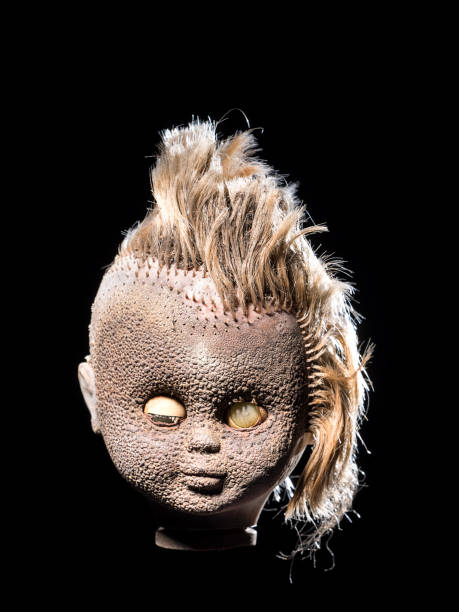- Catherine Maborukoje
- Horror Films, Psyche, Psychology
- 0 Comments
- 1612 Views
In the brain, fear causes a chain reaction that begins with stressful stimuli and ends with the fight-or-flight response…
If there is that one modicum of horror in films, it is the fact that it comes with a terrific twist of mixed feelings. Love. Hatred. Fear and reddish substance, dripping profusely: ‘blawd.’ But not everything is appreciated. At least, by some viewers who don’t fancy horror in films. Contrastingly, the constant churning out of such films, like “American Horror Story”, and “The Walking Dead,” with vampires, zombies, and ghosts on our screens, and with people tuning in, massively crossing 17.3 million viewers, it becomes a necessity to ask about the ethical danger in the consumption of such films.
As quoted by CSP Global, Vampires, werewolves, witches and ghosts are all main characters in horror films that we love to hate. While horror as a genre might not be as popular -“The Silence of the Lambs” is the only horror film ever to win an Oscar for best picture – as action, sci-fi, or rom-com, it has an alluring quality for sensation seekers among us.
Dr. Steven Schlozman who is an assistant professor of psychiatry at Harvard University suggests in his TedxNashville Talk that horror films are mirrors through which we see the dark aspects residing within us. According to Schlozman, horror films not only bring us closer to each other but also prime us to think about the big questions around racism, sexism, and the many injustices that affect us all.
But the portrayal of horror in films elicits a wide range of emotions, including love, hatred, fear, and thrill. While some find the suspenseful and thrilling aspects, as quoted by Schlozman, captivating, others may struggle with the intense and often disturbing content. It’s important to recognize that horror films can have a significant impact on viewers, both mentally and emotionally.
There is an undeniable allure to the unpredictability of horror in films, as each scene has the potential to evoke strong reactions. However, it’s essential to acknowledge that excessive exposure to intense horror themes can have adverse effects on mental well-being.
As an enthusiast of horror films, I appreciate their ability to provoke intense emotions. However, it’s crucial to approach these films with mindfulness and caution. Watching horror films in a controlled environment, such as in the dark with a sole light source, adds to the grotesque immersive experience. It’s important though, to remember that not everyone shares the same enthusiasm for frightening content, and some may find it deeply unsettling.
In what is believed to be the most revealing interview ever, Glenn Sparks, a professor at Purdue University, told Psych Central that people find horror films and TV shows upsetting. Sparks says these viewers “have a harder time screening out unwanted stimuli in their environment.” As a result, they can have negative psychological reactions to horror.
In the brain, fear causes a chain reaction that begins with stressful stimuli and ends with the fight-or-flight response, Sparks says. This response is mostly autonomic, meaning that people do not consciously know it is happening. Because the brain is highly complex and transfers information continuously, many cognitive processes are involved in the psychology of fear. However, Smithsonian identifies some of the key players:
- The thalamus determines where incoming sensory data should be sent in the body.
- The sensory cortex interprets this sensory data.
- The hippocampus can store and retrieve memories and process stimuli to give context.
- The amygdala determines possible threats and “decodes emotions” while storing fear memories.
- The hypothalamus activates the fight-or-flight response.
These biological components, according to Sparks harmoniously work to identify fear and respond to it.
The fear in horror films can trigger any negative reactions and reprogramme human perceptions. This is why it’s vital to recognize that horror films can affect individuals in different ways. For some, it can cause sleep disturbances and for othera, heightened anxiety to potentially triggering the development of new fears and phobias.
For the record, the impact of these films should not be underestimated. There have been rare but alarming instances where individuals have exhibited violent behavior inspired by horror films, highlighting the need for responsible viewing and self-awareness. But understanding personal boundaries when it comes to consuming horror content is crucial. It’s essential for individuals to assess their comfort levels and avoid indulging in content that may have a detrimental effect on their mental well-being. Practicing mindfulness and moderation while consuming horror movies is a prudent approach to safeguarding mental health and overall well-being.
Sleepless Nights and Restless Sleep
The effect that horror films have on sleep is one of the most obvious side effects. The films’ terror and anxiety might make it very difficult to fall asleep, which can result in restless, uncomfortable nights. Viewers may have persistent worries long after the film is done. This will make it difficult for them to obtain the rest they require as their minds may archive the horror portrayed in the film.
Increased Anxiety and Panic
Horror films might be particularly harmful for people who already have anxiety disorders or are highly fearful. The film’s strong feelings might raise anxiety levels, which can result in panic attacks and other upsetting symptoms. After the first viewing, these effects can last for days or even weeks.
The Development of New Fears and Phobias
Horror films can engender new phobias and fears by using a technique called classical conditioning. The brain starts to correlate specific movie scenes, sounds, or images with actual danger when they are frequently associated with terror. These connections have the potential to solidify with time, creating new phobias that might be challenging to get over.
Psychopathic Behaviour and death
This is the most deadly side effect; there have been instances where viewers have murdered people just after getting motivated by horror movies they’ve seen. Citing an infatuation with the film Scream, a 17-year-old student in France viciously stabbed a 15-year-old girl 17 times in 2002. The incident sparked debates about the impact of horror movies and even the media on vulnerable individuals.
Because of this, people should always be aware of their boundaries before watching a horror movie, and they should never even begin if they lack the confidence to watch it. It’s said that being cautious is better than being reckless.
Read Also: How A Killer Doll Sparks My Fascination for Horror Movies











